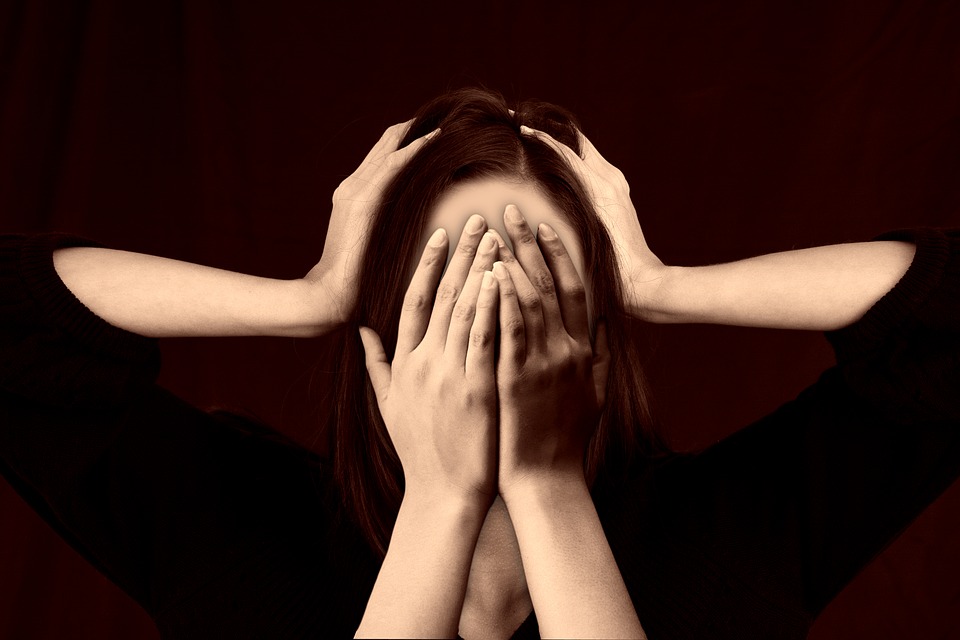
Body + Mind is reader-supported. We may earn an affiliate commission when you buy through some of the links on our site.
Sometimes, we find ourselves transitioning from happy to sad in a matter of seconds. If you’re a female, you know all too well that many people will chock sudden mood swings in females up to their menstrual cycles. And if you’re not on your period, then you must be emotionally unstable or weak, right?
In reality, many factors cause sudden mood swings in females, and mood swings are quite a common health problem in females. Anyone who confuses mood stability for mental strength is unaware of the underlying factors that stimulate bursts of sadness, anger or any other emotion. In fact, our feelings are so profound and complex that they can often stem from various other issues occurring within the body.
Whether you’re reading this article out of sheer curiosity, trying to show support for a friend or wondering what’s causing your own emotional changes, there’s often a logical explanation for what’s occurring in your moods. Not sure what they are? Here’s a look at four common causes of sudden mood swings in females and what you can do to prevent them.
Far too often, your emotional changes provoke one annoying and never ceasing question — “Are you on your period?” Did they not learn the last time they asked that question? Do they really want to die of death glare that much? Apparently.
What many people fail to realize, however, is that mood swings often come before — not during — the start of your menstrual cycle.
Uncontrollable or unwarranted mood shifts are a common symptom of PMS, or premenstrual syndrome. Roughly one to two weeks before your period starts, your hormonal changes can create a sense of emotional instability that persists until the last phase of your menstrual cycle, leveling your mood out by the time your period arrives.
Fortunately, women with PMS aren’t destined to put up with these mood changes for good. Medical professions recommend lifestyle changes, including dietary modifications and increased exercise, to help raise neurotransmitters and energy levels to keep sadness and anger at bay. No more fantasies — or realities — of going Hulk SMASH on everyone.
Did you know that women are twice as likely as their male counterparts to develop anxiety? And it isn’t a coincidence, either. Besides being straight-up common sense, researchers are starting to uncover the reasons why unwanted emotional changes and sudden mood swings in females seem to be more prevalent and their answers begin with an investigation of hormones.
From diabetes to hypothyroidism, many different issues stimulate an irregular hormonal response. Regardless of the root cause of your hormonal imbalance, your outcome will likely be the same. When you have too little or too many of these crucial chemicals, your brain cannot correctly send typical signals responsible for mood regulation to the brain.
Some individuals find relief through birth control and other hormonal medications that help ensure their hormonal changes are normal and healthy. In conjunction with a prescription treatment plan, many physicians also recommend that patients with hormonal dips choose to incorporate Vitamin C-rich foods, fruits, vegetables and omega-3s into their diet.
Most people know that stress can induce anxiety and worry, but did you know it can cause unexpected mood swings, too?
For patients with anxiety, the emotional toll can leave them feeling drained and on edge. It’s an expensive toll, too. This mental fatigue also agitates the formation of other health issues in women, including headaches, depression, disrupted sleep cycles, digestive problems and more.
What happens when you add a lack of sleep, sadness, body aches and tension together? The result can be mood swings that occur seemingly without one definitive cause — meaning moods swing at you from thin air.
If a sense of overwhelming stress triggers your mood swings, consider finding a few natural coping mechanisms that will help you to stay grounded in moments of worry. An apple a day may keep the doctors away, but sometimes, all you need is a bit of relaxation and yoga to keep your mental health in tip-top shape, too.
When you go through menopause, you may rejoice at the idea of no longer having to buy a box of tampons ever again. But while the end of your period may lead you into thinking you’ll say goodbye to period-related mood changes forever, that doesn’t mean you’re entirely in the clear when it comes to mood stabilization just yet.
Nearly 23% of women going through menopause experience emotional changes, making it one of the most common causes of mood swings in females.
But what’s the reason behind these unexplainable feelings of sadness, irritability and anxiety? Medical professionals claim that a decreased level of estrogen may be the culprit behind these tricky mood shifts.
However, menopause often isn’t the only cause for distress. During this time, many adults may also cope with the aging of their parents, grown children moving out, bodily changes and more — because when you’re down, it always seems like life loves to drag you down just a little more. While medication may help individuals deal with these mood changes, it’s important to seek out a form of talk therapy whenever necessary, too.
Sudden mood swings in females can be perplexing. One moment, you feel sadness. A few seconds later, you feel angry at yourself for feeling down without reason. And the spiral worsens. But while these emotional changes can cause a sense of uncertainty and dismay, many treatment and management options remain available to bring you the sense of peace you deserve.
Your email address will only be used to send you our newsletter, and at any time you may unsubscribe. For more information, see our Privacy Policy.